A Letter to Lisa Granik (New York Times Op-Ed Contributor)
This letter is in response to Lisa Granik’s op-ed in the New York Times’ Sunday edition.
Dear Ms. Granik,
After reading your op-ed over the weekend, I have two words for you:
Thank you.
That’s right, I’m thanking you even though I’m sure that by now you’ve received plenty of emails and calls from those in the Long Island wine industry, telling you that you’re wrong, misguided and misinformed — and you are in much of what you say — but I still think it’s great that your words were printed in the New York Times. The best way for any industry to improve is through open and honest discussion. Too often, we only hear about how great Long Island wine is — and clearly there is more to it than that.
That said, I think you are, in fact, under-informed in much of what you say saying and I think that your comment that "a close examination of the industry and its winegrowing environment suggests a more troubled picture," couldn’t be further from the truth.
First, if you really knew the people in the region, you’d know that most of the wineries that are for sale are currently owned by people who are of retirement age who are simply ready to move on. Owning and running a winery is hard work. This is true for the owners of Sherwood House Vineyards, Galluccio Family Wineries, Castello di Borghese and Ackerly Pond Vineyards. Harold Watts, owner of Ternhaven Cellars sold his vineyard, but still has his winery/tasting room and isn’t leaving any time soon. He’s in his early 70s. Can you blame him for not wanting to maintain and own a vineyard anymore?
Your comments also ignore the fact that even as wineries, vineyards and tasting rooms go on the market — other, new ones are popping up at a similar rate. Baiting Hollow Farm Vineyard is opening a tasting room soon, so are Diliberto Winery and Clovis Point. Shinn Estate Vineyards just invested in its own winemaking equipment and is building a B&B on their grounds. It’s easy to point out the wineries for sale…especially if you ignore the other side of the story.
Lieb Family Cellars is also not on the market. The farmhouse, which the Lieb’s rarely use, is for sale as is the land it’s on (which does include vines) but that’s not their entire vineyard holding.
I too found it curious — and yes, a little worrisome — that Leucadia decided not to plant vines on the land it purchased on the North Fork. But, I’m not arrogant enough to pretend that I know why a large corporation like that has made the decisions it has. Is it possible that the wine people at Leucadia still do want to plant but the finance types are looking at it purely as a money issue? No one disputes that it’s far from cheap to make wine here.
Next I’d like to talk about your comments with regard to merlot. I’m on record as disputing the fact that merlot should be "pushed" as the grape of Long Island, so that’s something we agree on. But it’s irresponsible to suggest that Bordeaux varieties don’t do well here. You must not be tasting the same wines I taste every day. Panels of professional tasters and some of the worlds best wine critics have started lauding these wines. Of course there is a lot of bad wine being made here too — but isn’t there a lot of bad wine being made in every single wine region in the world?
Again, I agree with you about pushing merlot. Some of my favorite local wines are made with the beautiful, balanced blends that are being made. I love several of the cabernet francs. Local winemakers have even convinced me of how lovely barrel-fermented chardonnay can be — because they aren’t making them in a flabby, sweet California style.
You also say that more wineries need to experiment with different varieties. Okay, maybe. But it’s easy to say that without offering suggestions. One thing to keep in mind is that many vineyards are planted with experimental grapes, clones or rootstocks, but you won’t hear about them until they are a success and the vineyard can plant more. Then, it will be at least three years before you get wines from those vines.
As far as varieties they should try, I’d love to know what you have in mind. People have tried zinfandel and other warm-weather grapes. It’s just too humid here. It’s just doesn’t make sense to invest in Tempranillo, Grenache and other grapes that love hot, dry weather. Wineries are, however, starting to bottle varietal malbecs and petit verdots. We’re going to see some new varietal syrahs this year and there are also some interesting, unique blends popping up on the island. If you want experimentation, you have only to look a little more closely.
I’d like to see someone try Gruner Veltliner myself. My limited grape-growing knowledge makes me think it might thrive here.
One of the things that you and I agree 100% about is the Bordeaux comparison. I’ve said for quite a while now that I think Long Island should focus on itself instead of the comparisons to Bordeaux or any other region. But, I don’t really hear people in the industry talking about Bordeaux much anymore either. When I first started covering the region, I heard it a lot, but now I don’t. Or, if the name Bordeaux is evoked, it is in the context of "We’re similar to Bordeaux, but we’re further south and unique."
You also mention that "too many wines still reflect poor winemaking choices, often to mimic popular styles that will never be Long Island’s legacy."
This strikes me as a comment from a person who hasn’t tasted many recent vintages. As recently as a few years ago, I think you were partially correct. There were too many flabby, over-oaked whites and may reds trying to be California in style with big, plush styles and way too much barrel time. But winemakers are always learning and I’d argue that those California or Australia-style wines are the exception rather than the rule now. Lenz Winery makes cabernet sauvignon that most California winemakers wouldn’t recognize as cabernet. Several producers are focusing on aromatics these days, not oak. It’s an evolution that is easy to understand and expect. The proliferation of low- and no-oak chardonnay is an excellent example of winemakers trying to capture the true essence of Long Island.
I think that Long Island’s winemakers are getting better at letting Long Island happen in the wines. They are taking a step back and putting some of the new oak barrique away.
I also have to tell you that you lost me when you mentioned the "consistent style…from an Australian or Californian merlot or chardonnay." If you, or the average consumer, prefer those simple, juicy and sweet-tasting wines, Long Island may not be for you. That may be a popular style today, but I see that tide shifting. Many wine writers and critics are speaking out against those wines after many years supporting them. Like it or not, consumers follow wine critics and I think more consumers will come around to the joy of balanced, food-friendly wines in coming years.
You also write that "variation between vintages was put forward as an advantage by local vintners," and I would love to know who you’ve talked to. I talk to vineyard managers and winemakers every day, and it seems to me that they’d prefer to consistent growing conditions every year. It’d probably mean a lot less stress and a lot fewer sleepless nights. Vintage variation is a part of life, but it’s also worth noting that improved vineyard management practices are helping to eliminate the poor vintages of years past.
Moving on to another of your points, sure, it’s important to get more Long Island wines into New York City, but I doubt that moving the Long Island Wine Council office into Manhattan is going to accomplish that. I don’t pretend to know what the answer is, but I know a lot of people who are working really hard to make Long Island wines easier to find in NYC.
Ms. Granik, you seem to have a negative view of the Long Island wine industry as a whole. You are looking for a "quality-at-all-costs
producer to arrest the consumer’s attention and inspire the neighbors" but that ignores the reality that winemaking is a business, not a hobby. And, I’d argue that you just haven’t tasted the right wines. It’s easy to wonder where the quality is if you haven’t tasted enough of the wines.
In closing, I’m not saying that your op-ed is off the wall or insane. In the late 1990s or early 2000s, you’re comments would have been much more timely and ring more true. But as it stands today, I think you’re behind the times.
I also think that you’re forgetting one important thing — the Long Island wine industry was founded in 1973 and is somewhere between a toddler and a teenager (depending on who you ask) in the wine world. The region has gone through the crawling stage and has clearly learned to walk. Some producers have gone one step further and learned how to run. Others will as well — and soon.
What the region needs now is support and patience. Is it perfect? Far from it, but it is certainly not a stagnant — or sour — industry. I’d love to have you come tasting with me sometime so that I can show you my Long Island wine country. As I said at the beginning of this letter, only through discussion will things get even better.
Cheers,
Lenn Thompson









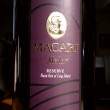
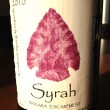

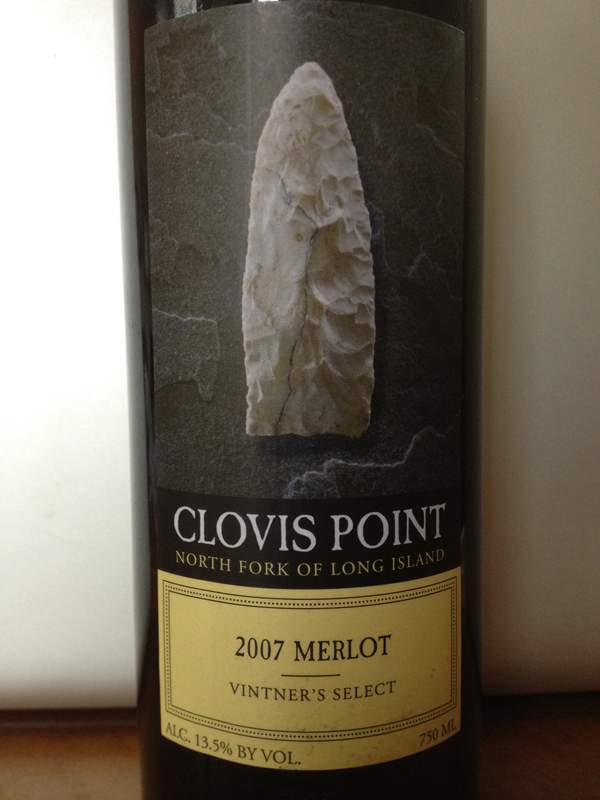
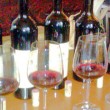






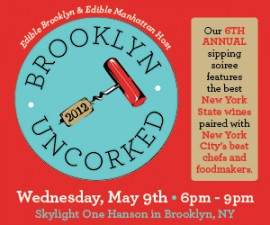

Lenn: Thoughtful and comprehensive response to a provocative editorial. Yes, it is good to stir up some controversy-an opportunity for people in the industry to engage in self-examination.
I, too, think that Ms.Granik shortchanges the Long Island wine industry. Even with minimal contact, one knows that there is an encouraging amount of experimentation underway. Syrah is being produced with positive results. Channing Daughters has done wonders with off the beaten path whites and Shinn and Paumanok are serious about red grapes that we rarely see bottled on their own.
What bothers me the most, however, is the author’s suggestion that the vintners should be content to be minor players in a minor scene. If they weren’t ambitious dreamers in the first place they would not be Long Island grape growers. So they should now turn into the vinous equivalent of journeymen athletes?
If Ms. Granik does accept your offer for tasting, I suggest that you make Paumanok your first stop. I am sure the Massouds would be happy to let her sample the 2005 reds. If she is unmoved by those powerful wines, I would call it a day.
Ray Ormand
Well done Lenn and Ray. You both have pretty well covered my thoughts and I will not add comments on Ms. Granick’s piece. My questions are to the NY Times.
- This is not a letter to the editor where the writer is responsible for his/her own thought and does not reflect the newspaper’s. As an OpEd piece it is subjected to some scrutiny. It is somewhat puzzling and disappointing that the NYT did not see fit to do some fact checking and to not seek a companion piece that would have weighed on the issues brought up in the piece.
- Ms. Granick, whom we have always considered a friend, is, reportedly, currently employed by a large wine distributor with a wine portfolio of wines including from California and Australia. Is it appropriate for the NYT to give her such a forum when, in theory at least, she could personally benefit from beating down her competition?
- Did the NY Times do any fact checking with its own Eric Asimov and Howard Goldberg, both of whom have enthusiastically reported on our wines? Their comments in the NYT contradict the most negative comments of Ms. Granick.
The least the NYT can do is to publish a responsible rebuttal to this flawed piece.
Charles Massoud
Proprietor, Paumanok Vineyards, North Fork of Long Island (Proudly so!)
Lenn hopefully the NY Times will just print your letter as a rebuttal. Oh and I looking into planting some Gruner Veltliner experiments upstate so send me any info you have and don’t give anyone else that idea, lol. Cheers!
And luckily there are people who love to drink wine, like myself, and whose financial situation demands that we think about what we buy, not just pay for wine because it’s from Bordeaux, for example. I continue to be impressed with LI Wines the more I taste, and my wife and I had a wonderful time when visiting the North Fork last summer. The wines are great with food and they’re local, which matters to me. I am having a blind tasting soon with some wine friends and wines from LI will be tasting alongside wines from Bordeaux and California, all wines not older than 2000. I can’t wait to see the results!
I stopped reading the New York Times about a year ago. That’s perhaps much easier to do in Syracuse, where we are 250 miles removed from metropolitan New York, but I highly recommend such a move. I find most of the paper, minus a couple of features, really irritating.
Good response, Lenn. Thank goodness for the internet.
I think Lisa Granik hit the mark in her final sentence “Without a new focus on wine quality, the East End will be overrun not just by the developers, but also by the competition.” However many of her other ideas are a little simplistic. Is it worthy of a master’s thesis to posit that growing varieties that people want to buy at a fair price and then selling a lot of them will bring economic success? Dang it, maybe I’ll have to revamp my doctoral essay!
Also I think her view that the number of wineries/vineyards for sale reflects a problem is really not accurate. A like number of properties have been sold in the past few years, with the owners realizing fairly substantial profits. Since most of the land associated with those sales has the development rights sold, the value has been added by the fact that they are vineyards. Why shouldn’t other owners see if they can collect some of that value increase as well?
Thanks for presenting this Lenn and thanks for your reply. I completely agree with Charles. I’m not quite sure why Ms. Granik was allowed to represent herself as an authority on the subject as her essay is flawed from the beginning. First, she presents a spurious hypothesis that there is a problem in the Long Island wine industry and that it needs to be corrected. This argument is presented after one of the most successful years ever for Long Island wine - from top reviews in the Wine Spectator and Robert Parker, record sales in winery tasting rooms and to a record number of placements on Manhattan’s best wine lists. Excuse me, what planet has this woman been living on?
Are we as precocious as we could be? Probably not, but as those of us in the wine industry know (and as MW Granik should know as well) these things take time. It took California and Australia (clearly Ms. Granik’s model for fine wines) well over 100 years to finally get the acclaim they deserved - so it might take us a few more years as well. It took temperate Europe much longer. Perhaps Ms. Granik could have done a closer examination of our terroir to understand that it was not just the temperate conditions of the Island that caused us to identify with Western France, but actual climate and soil data. Also, Long Island producers have historically aligned themselves with the Old World - not because its who we want to be - but because of the characteristics of our grapes and the subsequent bearing of our wines. It is who we are - and our only and best response to a market obsessed with the “consistently styled” high alcohol “fruit bombs” of the left coast. Thankfully we will never make wines in the “West Coast” or Australian style. Of course we don’t want to compare ourselves too much to the old world, what with their “dubious business model” of winemaking being only 800 years old and all…;-)
No doubt there are some truths to be found in her dissertation. Yes, not all wineries are completely committed to quality wine production. I’ll be the first to admit we still have a lot more work to do with the varieties we already have in the ground. Yes our research program has been woefully under-funded. As a long-term member of the Cornell research lab advisory committee one of our main functions over the years has been to try and develop new and creative ways to fund wine and grape research. We continue to work hard in this regard.
I could go on here forever but honestly most of the article doesn’t even warrant this much of a response. It’s a disappointing treatise coming from an MW and in particular from the usually discerning New York Times. Though I’m sure Ms. Granik worked hard on her dissertation and learned a great deal about the subject of wine in her studies, she needs to understand that the growing and making of fine wine has never been a craft that can be accomplished solely through book learning.
You go Lenn. As always, to the point, eloquent and kind.
Nice job, Lenn, and everyone else.
I missed the original posting so I am truly thankful that you have commented in a brilliant and civiled manner.
I just hope nobody on LI ever gives Ms. Granik a job.
civil or civilized, take your pick
Amazingly well presented reply Lenn. I’ve been behind in my reading, has the Times printed any portion of your response?